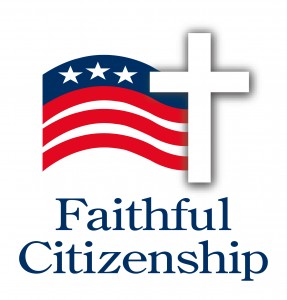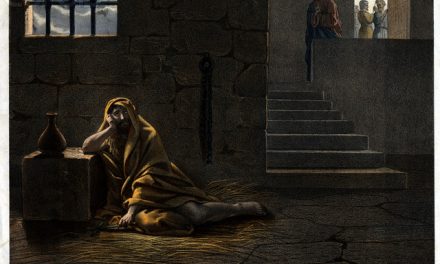 The director of my state’s Catholic Conference came to my parish last night for a candid conversation of Faithful Citizenship. It was extraordinarily well done and I was very proud both of my parish for encouraging the conversation and my fellow parishioners for their participation. There were a couple of things that made this program a success that I want to briefly highlight for those who might facilitate similar conversations in their own parish communities.
The director of my state’s Catholic Conference came to my parish last night for a candid conversation of Faithful Citizenship. It was extraordinarily well done and I was very proud both of my parish for encouraging the conversation and my fellow parishioners for their participation. There were a couple of things that made this program a success that I want to briefly highlight for those who might facilitate similar conversations in their own parish communities.
1. Simplify
Our director did a really good job of speaking in clear, and easy to understand language when describing policy and when talking about moral theology. Words like “subsidiarity,” while one of the four “principles” of CST in the revised version of Faithful Citizenship, are not self-explanatory. People want very badly to understand the moral tradition that is supposed to inform their conscience, but they can’t always wrap their minds around the jargon. Even “conscience” can be difficult to understand. One woman mentioned that in her field of healthcare, all presentations had to be made on the reading level of a sixth-grader. This is something to consider when we talk about the moral tradition.
It is also something to consider when addressing policy that we want Catholics to understand. The TPP (Trans-Pacific Partnership) is a major issue for both presidential candidates but very few people understand what it is all about (or who the agreement is with). The Hyde Amendment will be a very relevant issue for Catholics to consider this election, but they need to know what it is. We work on the blog to try and talk about these issues on a more popular level but those efforts need to be further distilled to the parish level.
2. But don’t make it too simple
One parishioner mourned the loss of candidate questionnaires, where he could look at a simple checklist and see which candidate best aligned with Catholic principles. There is something to be said for a checklist, but voting as a Catholic is not that simple, as our director did a good job pointing out. First of all, few candidates answer and return questionnaires. Second, candidates may lie or misrepresent their positions for the purpose of questionnaires. Finally, questionnaires don’t give a full picture of who a candidate is.
While we tend to think about voting in terms of issues, we must not forget how important character is when making a decision about who to vote for. The Iowa version of Faithful Citizenship quotes this passage from the Compendium of the Catholic Church:
“Those with political responsibilities must not forget or underestimate the moral dimension of political representation, which consists in the commitment to share fully in the destiny of the people and to seek solutions to social problems. In this perspective, responsible authority also means authority exercised with those virtues that make it possible to put power into practice as service (patience, modesty, moderation, charity, efforts to share), an authority exercised by persons who are able to accept the common good, and not prestige or the gaining of personal advantages, as the true goal of their work.” (Compendium of the Social Doctrine of the Church, No. 410).
In other words, we are not simply looking for a candidate who aligns him or herself with certain positions, but a candidate whose character is excellent, a candidate who appears to be prudent and wise in practical matters, a candidate who values listening and compromise, a candidate who is modest and humble and willing to share power. This sort of decision cannot be made by looking at a checklist or questionnaire.
3. Make it local
Presidential elections often dominate our attention but often local races are much more important places to voice Catholic concerns and to have an impact as a voter. Unfortunately, it is very difficult to navigate local elections and people often need help understanding what is at stake. Local Catholic conferences often have a list of candidates, and while it should be clear that the church endorses no person, having those lists accessible in churches can help people understand other elections that they need to prepare for.
4. Empower
The most important thing our director did last night was empower the participants. “You can make a change,” he kept telling us. He gave us multiple ways of getting involved, down to simply emailing our candidates in local elections, encouraging them to conform themselves to the principles that we hold so dear. “Just five emails saying the same thing makes a local candidate take notice.” This is exactly what people want to hear right now, especially in a national election cycle that makes so many people of good faith feel so impotent. People need hope, and reminding them that all is not lost, that we can be a force for positive change, is a way of imparting that hope.
I left my church last night encouraged and I hope that as we draw closer to the election and continue studying Faithful Citizenship and the teachings of the church, we can find more ways to encourage and empower Catholic voters.





Making it local is one of the things I’ve been thinking about for a while. I think we’ve idolized the national election while failing to see that much happens at a local level. It’d be great to see more Catholics involved in more grassroots efforts in their own communities far from DC.